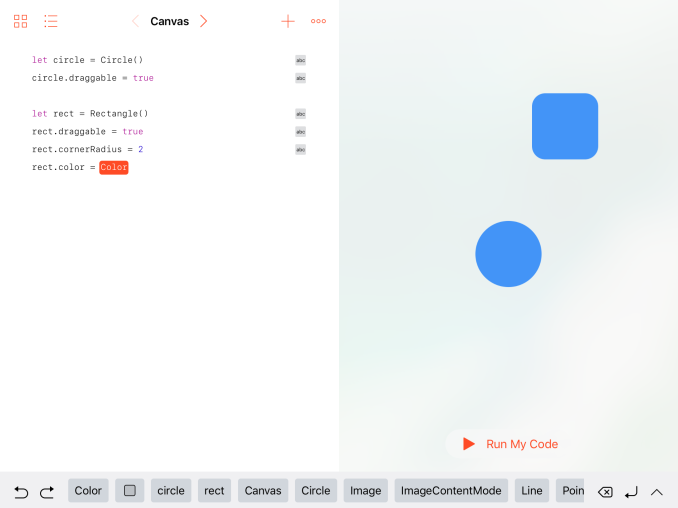The iOS 10 Review: Refining the iOS Experience Both Over & Under the Hood
by Brandon Chester on September 13, 2016 12:00 PM ESTFinal Words
iOS 10 marks a major anniversary for iOS. Originally launched as iPhone OS way back in 2007, iOS has come a long way from its original iteration. iPhone OS 2 brought the App Store, while iOS 4 brought the iOS name. iOS 5 brought Notification Center and many new APIs, and iOS 6 brought Apple Maps. With iOS 7 a brand new design was created, which has been iterated on since then in iOS 8 and iOS 9.
Now after nearly ten years we have iOS 10. iOS 10 is a very big release, and there's far more to it than what I've been able to cover in this review. Many parts of the OS have received subtle tweaks to their appearance, while some apps like Maps, Music, and News have received complete redesigns. It's impossible to cover all of the changes Apple has made, and users will end up discovering them for themselves over time after they update their phones.
iOS 10 comes with a new design of its own. It's definitely an evolution of the design put in place with iOS 7, but the level of refinement is far greater than in iOS 8 or iOS 9. iOS 7 took Apple's new design principles as far as they could go, and the interface ended up being a bit too abstract to be intuitive. Since that time Apple has taken a step back by making parts of the UI that can be interacted with more pronounced, and in iOS 10 they've stripped out many of the UI's hard edges and replaced them with rounded corners and cards that contain the contents of views. It definitely takes inspiration from the evolution of other operating systems like Android, but the end result still feels distinctly Apple and fits in great with the design of iOS.
iOS 10 brings some great new features. Again, I haven't nearly been able to cover them all, with the most notable omission being the changes made to the Photos app. Thankfully, I actually covered all the new features previously in my preview of macOS Sierra, and all the features there have made their way to Photos on iOS. Messages is definitely the other tentpole feature of iOS 10. Apple has taken a great deal of inspiration from other messaging apps to add functionality to iMessage. Most of it is just visual, with new message effects and Digital Touch being brought over from the Apple Watch. The inclusion of iMessage apps will allow for functional improvements as well, with messages that hook into iOS applications to allow the sharing of content. What developers do with iMessage apps remains to be seen, but the fact that Messages is the most used application on iOS makes me confident that the adoption will be quite strong.
As a developer, the most exciting thing that iOS 10 has brought is Swift Playgrounds for the iPad. When I first heard about the app I assumed it would only be useful as a tool for teaching basic programming concepts. That assumption was completely wrong, and I underestimated the app in two big ways. Apple's included books already go beyond what I expected to be taught in the learn to program guides, and the ability to create books for other users to download means that online programming courses and tutorials can use Swift Playgrounds to teach any concept they want in a fun and interactive manner.
The other way I underestimated Playgrounds was assuming that it wouldn't be useful to existing iOS developers. I didn't think that Apple would make UIKit available in the app for developers to use, but I was wrong. Swift Playgrounds on the iPad is actually a great tool for prototyping and testing ideas when you're away from your development machine, and the availability of UIKit means that you can use the same APIs that you use for designing real applications. I don't have any doubts that Playgrounds is the first step on the road to XCode for the iPad, and I don't think it'll take long for that to become a reality.
iOS 10 is a fitting tenth anniversary release for iOS. It brings enough refinements to the UI that you could call it a redesign in its own right, includes big changes to core parts of the experience like Messages, Photos, and Siri, and it has laid the foundation for a future where you can develop for iOS using iOS devices. On top of all that, it brings stability and smoothness to a level that I haven't seen on iOS since long ago with iOS 6 on the iPhone 5. Users of older and newer iOS devices alike will enjoy iOS 10, and with some great new APIs for developers to use in their apps the experience for users is only going to get better as time goes on.












113 Comments
View All Comments
sonicmerlin - Wednesday, September 14, 2016 - link
Really? Hiccups and frame drops make a powerful phone look weak. Smoothness adds to the sensation of fluidity of user experience. Aesthetics are a constant stimuli while using something as personal as a cell phone.tipoo - Wednesday, September 14, 2016 - link
We [probably] live in the first world, what else are we supposed to have?And nor does first world mean developed world.
https://en.wikipedia.org/wiki/First_World
Ranger1065 - Thursday, September 15, 2016 - link
The fact that you feel the need to differentiate between the terms "first world" and "developed world" is symptomatic of a first world mindset, as is quoting Wikipedia as an authority.If people are seriously concerned about " a tiny bit of judder while scrolling in safari,"
count yourselves lucky you don't have any real problems.
I don't live in the first world and I don't give a damn about political correctness or terminological exactitude, when all it amounts to is splitting hairs....just for the record :)
star-affinity - Wednesday, September 21, 2016 - link
I would't say I'm "seriously concerned" about those things, but when you're talking about a device that's beeing used extensively I absolutely think it's worth discussing user experience.Of course a lot of thing seems rediculous when looked at "the grand scale of things", but I still don't thing one thing has to exclude the other. It's always difficult to compare your own life to the rest of humanity, because there will probably always be someone who has a worse situation in life than you. So does that mean we shouldn't strive for quality and a good experience when using smartphones? I think not.
robinthakur - Friday, September 23, 2016 - link
If you don't live in the "first world" perhaps you'd feel more at home at an Android site ;)tipoo - Saturday, September 16, 2017 - link
Or you could look up any other source you wanted with the information at your fingertips and find I'm right about the definition. First world just meant US and it's allies, second meant the USSR and it's allies, and third world meant unaligned. Not anything about riches or poverty.robinthakur - Friday, September 23, 2016 - link
I agree, it got so bad on my iPhone 6 plus about a month ago, that I got judder scrolling from one home screen to the next, so in a fury I went and bought an S7 Edge to play with until the iPhone 7 was released. It's actually very very smooth overall and if it integrated into the rest of my kit and Apple services (Apart from Apple Music) then I might consider using it. Overall, the tight design language throughout the hardware and the operating syMornistem and polished first party features made me order the iPhone 7.iPhone used to be the smoothest scroller and was a major factor in me staying on iPhone before iOS8 because I can't stand frame rate drops (I like my games 60+fps too) so this is also a big deal for the 7/iOS10 and how they choose to optimize in the future. The phone should never feel 'slow' in normal day to day operation using OOTB features...
lilmoe - Tuesday, September 13, 2016 - link
Also, take a look at those improved Javascript benchmarks, seems like iOS10 came with a CPU upgrade too!/s
Meteor2 - Tuesday, September 13, 2016 - link
Now I know Anandtech won't do a day-of-release view of the iPhone 7, but when can we expect to see a review?JoshHo - Tuesday, September 13, 2016 - link
When it's done.